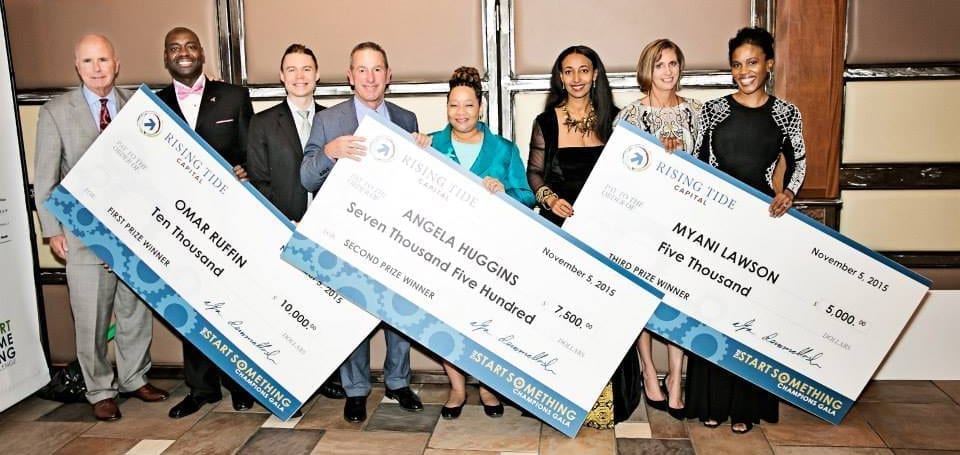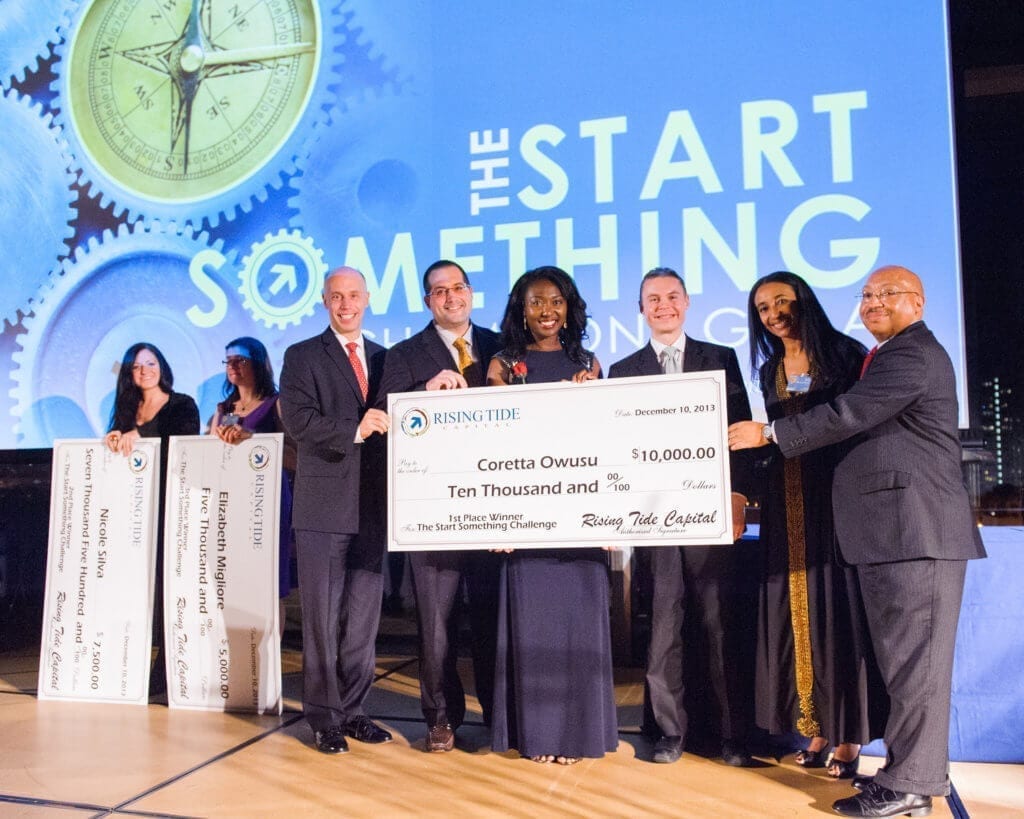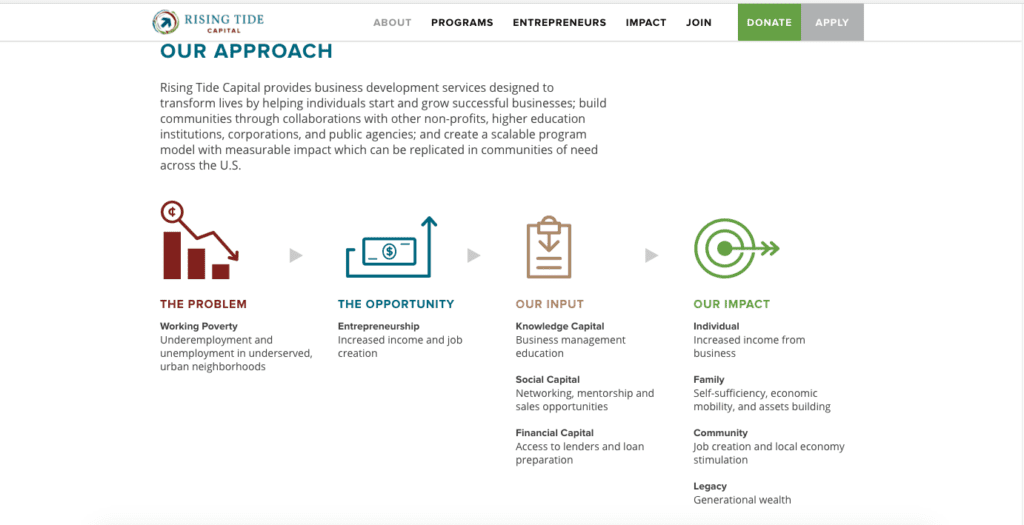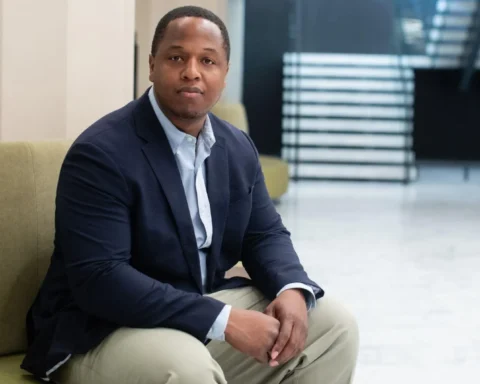In 2009, the CEO of Rising Tide Capital, Alfa Demmellash, was among a group of creative philanthropists honored by President Obama as a CNN hero.

“Alfa helps struggling mom-and-pop entrepreneurs get loans, run their businesses and improve their profit margins,” Obama told the gathering at the East Room of the White House.
“Seventy percent of their clients are single moms. All of them rely on their businesses to support their families. And so far, Rising Tide has helped 250 business owners in the state of New Jersey.”
We wanted to learn more about how and why Alfa is passionate about seeing entrepreneurs succeed. Here’s what she had to say:
SB: What inspired the creation of Rising Tide Capital?
AD: I was inspired to start RTC because of my mother who worked as a waitress during the day and made dresses at night to make ends meet.
I remember trying to get her to formalize her sewing business, but she was intimidated by the process of going to the bank to get a loan and creating a business plan.

We offer programs like the Start Something Challenge and Community Business Academy to help people, like my mother, gain the tools they need to transform their side businesses into sustainable and profitable ventures.
While I was at Harvard, I visited Rwanda and saw how critical it was for people to have hope and accessible opportunities.

When I graduated, my business partner Alex and I spent time getting to know Camden, Trenton, Newark and Jersey City, and we recognized that the entrepreneurial spirit in each community could answer the community’s own needs.
RTC, a 501(c)(3) nonprofit organization, was created out of a desire to give people the necessary skills, opportunities, and tools to solve the problems in their own community.

SB: How did your upbringing in Ethiopia influence who you are today?
AD: When you grow up as a child of a community made up of aunts and cousins and grandparents, you deeply understand how connected we are to each other, and how our success, or failure is bound together. Having such a strong and interrelated support system taught me the value of community.
SB: What are some of the most common issues facing the entrepreneurs that you meet? How does your organization help address these issues?
AD: We often find that our entrepreneurs face one or more of the following issues: the lack of knowledge capital, social capital, or financial capital and we work to address each of these gaps.
Knowledge Capital: Many of the entrepreneurs we meet are talented individuals—people who know the industry in which they want to start their businesses very well. What they lack are the business skills needed to leverage their talents into a business, or knowledge capital.
Through our Community Business Academy (CBA), we offer adult learners a space to learn the fundamentals of building and growing a business.
After students graduate from the 12-week program, we create an individual action plan for each of them, taking into consideration their business goals, as well as their personal circumstances.
Social Capital: We also find that incoming entrepreneurs lack social capital, that is, a network of people who can open doors and connect them to opportunities, beyond their immediate community.
Every classroom at RTC is its own community and we are intentional about creating spaces where every ethnicity, gender, and income levels is represented.
We also leverage our own partnerships to benefit entrepreneurs by building and utilizing an extensive network of small business development service providers—from local microlenders, to business incubators and coworking spaces.
Financial Capital: Finally, we address the lack of financial capital. At some point in their journey, almost every entrepreneur will need a loan.

While we at RTC don’t lend, we do have partnerships with a number of different kinds of lenders through our Credit to Capital program, from crowdlending platforms like Kiva, to local microlenders like The Intersect Fund, GNEC, and Accion International, to partnerships with local banks and credit unions. We ensure that our entrepreneurs are ready for a loan and we connect them to the right lender.

SB: Who is one of the most memorable entrepreneurs that has come through your program?
AD: 1,976 entrepreneurs have graduated from the CBA, so we have a number of memorable individuals. Here are a few of the incredible people we’ve worked with:
Gustavo Estrada is providing behavioral health services to families in their native language which increases the effectiveness of the services.
Universe Konadu is empowering at-risk girls through literacy and visual and performing arts.
Pamela Roundtree is on a mission to bring nutrition and exercise to the inner-city, to reach people who are intimidated by the idea of the gym, but desperately need to be thinking about their health. You can read more of our entrepreneurs’ stories at risingtidecapital.org/stories
You can read more of our entrepreneurs’ stories at risingtidecapital.org/stories.

SB: What are the keys to being a successful business owner?
AD: I think what’s essential to our success at RTC, is our focus on ongoing business planning. Taking the time to understand how your industry is changing and what opportunities are available to you is a key part of being a successful business owner. It is essential to the growth and health of your business to work on it as well as in it.
SB: What advice do you have for aspiring entrepreneurs?
AD: Building a business is just like starting at a new job. So pick a start date, give yourself a title, and write up a mini job description for yourself and for your business.
Consider questions like “How can my passion be fulfilling to someone else?” and “Who else might love this thing for the same reasons that I do?”
It’s essential to figure out why people will come to you, instead of going to someone else for a similar product. What makes you different?
Setting a price for a good or service is often very difficult for most entrepreneurs, even those who have established businesses. Just remember, it is a lot harder to raise your prices once you are in the marketplace than it is to bring them down.

So, when in doubt always start high and offer incentives or discounts to get your initial customers in the door. Being friendly, open to critique, curious, and empathic are all qualities that are essential to your success.
If you don’t have these qualities from the start, work on them in yourself or find allies that you can learn from.
SB: Where do you see RTC five years from now?
Within the next five years, we see the build out of replication programs, and the emergence of a national community of Rising Tide Entrepreneurs.
As RTC has grown, we’ve had requests from many communities for our programs. We held off on these requests because we wanted to stabilize our model, and strategize intentionally on the best way to bring our work to more communities.

A few years ago we started working with our first-ever licensed partner in Chicago, Sunshine Enterprises, to offer our Community Business Academy and Business Acceleration Services.
They are growing rapidly and are now in three communities in Chicago. Having learned from the success of this pilot program, we are ready to license and train more partner organizations to deliver our programs in their communities.
-Anthony Oluwatoyin Lawson






